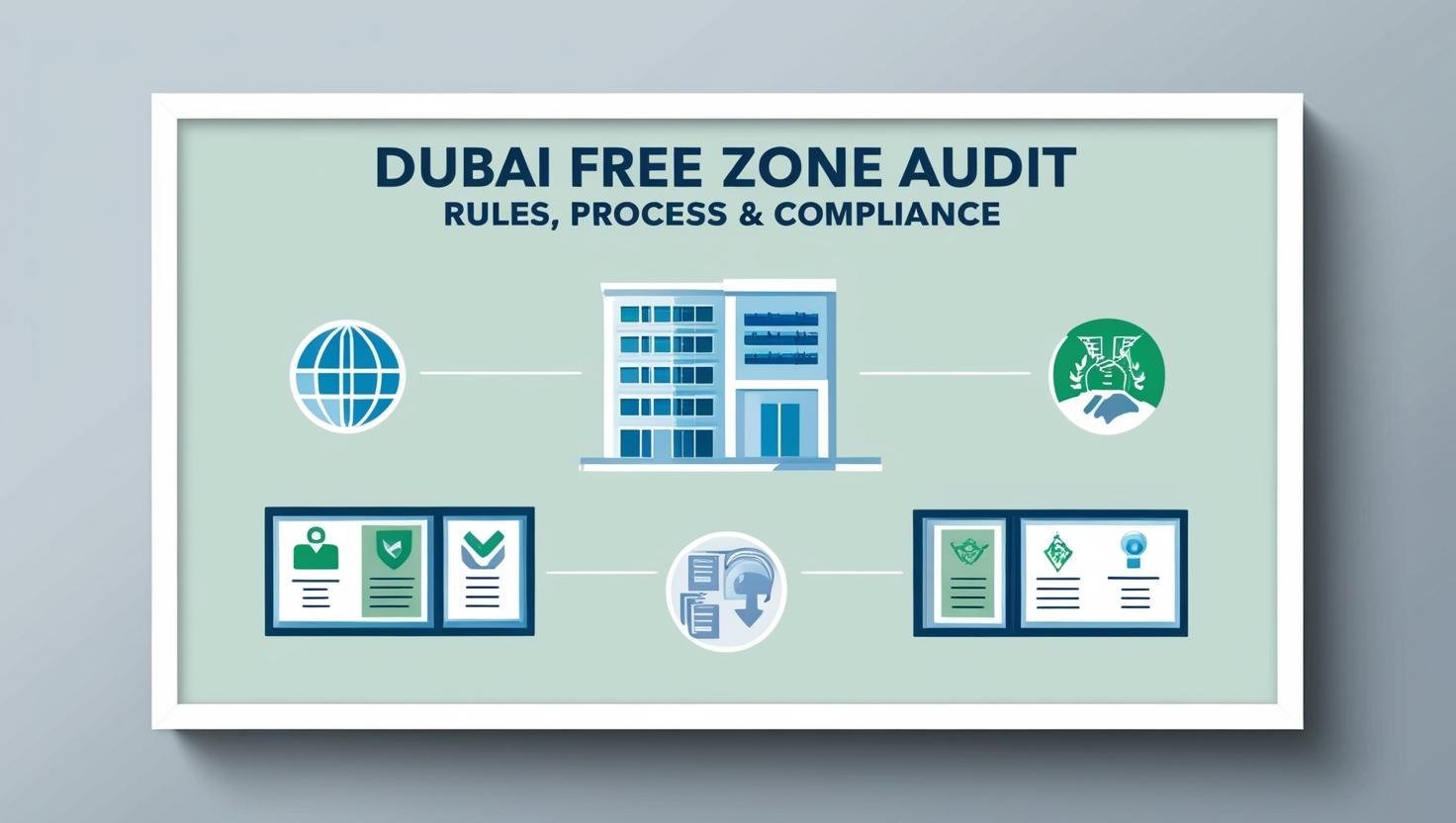 YOUNG AND RIGHT
YOUNG AND RIGHT ACCOUNTING & TAX CONSULTANCY
From corporate tax registration to audits and bookkeeping, Young & Right offers personalized solutions that keep your business compliant and stress-free. Let’s take the complexity off your plate—starting with a free consultation.
Book Your Free Consultation
Dubai's Free Zones play a crucial role in the city's vibrant economy, acting as dynamic business hubs that attract companies from around the world. These zones offer a wide array of incentives, including tax exemptions, 100% foreign ownership, and simplified regulations, making them particularly appealing for businesses across multiple industries such as trading, manufacturing, IT, and e-commerce.
However, despite the numerous advantages, businesses operating within these zones must comply with stringent audit requirements to ensure alignment with local financial, legal, and regulatory standards. The Dubai Free Zone Audit process is essential for businesses to meet these obligations, ensuring financial transparency and adherence to UAE corporate tax laws, as well as the specific rules and regulations set forth by the Free Zone Authority.
A key element of the audit process is the preparation of comprehensive audit reports that provide a detailed review of a business’s financial statements and ensure that they meet the audited financial statements criteria. To ensure the accuracy and reliability of these reports, businesses are required to work with approved assistance providers who are familiar with the unique requirements of each major Free Zone.
For companies operating in Dubai’s Free Zones, maintaining compliance through regular audits is not only crucial for business success but also for sustaining their legal standing and continuing operations within the UAE Free Zones framework.
Most of Dubai’s Free Zones require annual Audit assistance to ensure that businesses comply with both local and international standards. The key Free Zones in Dubai that require audits include:
→ Dubai Airport Free Zone (DAFZA)
→ Jebel Ali Free Zone (JAFZA)
→ Dubai Multi Commodities Centre (DMCC)
→ Dubai Silicon Oasis (DSO)
→ Dubai International Financial Centre (DIFC)
Other Free Zones, such as Dubai World Trade Centre (DWTC), Dubai Internet City (DIC), and Dubai Healthcare City (DHCC), also mandate audits. These major Free Zones provide companies with tax benefits but also have strict audit requirements to ensure compliance with financial regulations.
The audit process for Free Zone companies follows several key steps designed to ensure that all financial statements and financial records meet international financial reporting standards. Below is a breakdown of the typical steps in the process:
Businesses engage an approved Audit assistance provider from a list of accredited firms. The Audit assistance provider is provided with the necessary financial statements, tax returns, transaction records, and contracts.
The Audit assistance provider evaluates the business’s financial status and identifies risks associated with financial discrepancies. A detailed audit strategy is created based on the complexity of the business and internal controls.
During this phase, the Audit assistance provider examines financial transactions, verifies records, performs reconciliations, and evaluates the company's internal controls. This ensures the financial statements reflect the true financial position of the business.
After completing the audit, the Audit assistance provider issues an audited financial report that includes a summary of findings, conclusions, and recommendations. If the audit is favorable, the audit report is submitted to the Free Zone Authority. In case of discrepancies, corrective actions are noted.
If discrepancies are found, businesses must take corrective measures. Follow-up audits may be conducted to ensure the business complies with the necessary audit requirements.
Auditing is not only mandatory to maintain valid professional licenses but also crucial for ensuring financial health and corporate tax compliance. By conducting annual audits, companies in Dubai’s Free Zones can:
→ Demonstrate financial transparency to investors and stakeholders
→ Ensure compliance with UAE corporate tax regulations
→ Maintain the validity of their trade licenses
→ Ensure financial integrity through regular checks and balances
While audits are essential for Free Zone auditing assistance services, businesses often encounter challenges during the process. Here’s how to address these issues:
Businesses must maintain accurate and organized financial records throughout the year. Regular accounting reviews can help keep records updated and prevent delays during the audit process.
The dynamic nature of UAE regulations can create challenges. Companies should work with trusted audit firms who are familiar with the evolving rules of Dubai Free Zones.
To avoid discrepancies, businesses should establish strong internal controls and implement a proper reconciliation process to ensure that financial transactions are accurate.
Given the introduction of VAT in the UAE, businesses should ensure accurate reporting of VAT records, which is critical for passing the audit and avoiding penalties.
At Young and Right, we are well-versed in the audit requirements for businesses in Dubai Free Zones. Here’s why businesses choose us for Free Zone Audit assistance:
We understand the rules and penalties associated with Dubai Free Zones and provide tailored audit services to ensure compliance with the Free Zone Authority regulations.
Our Audit assistance services cover all aspects, including financial health, VAT audits, and internal controls, ensuring that your business remains in full compliance with both local and international financial standards.
Our team ensures that audit reports are delivered promptly, ensuring that your business meets all annual report requirements for trade licenses and financial statements.
We offer solutions that are tailored to the size and scope of your business, whether you’re a startup or an established company. We align our services with your specific needs and Audit assistance requirements.
Conducting Audit assistance in Dubai Free Zones is an essential process for businesses to remain compliant with financial regulations, maintain financial integrity, and protect their trade licenses. With the support of Young and Right, businesses can navigate the complexities of Free Zone audits, ensuring that they remain compliant and audit-ready.
Contact us today to partner with a leading Audit assistance provider for your Free Zone audit needs.
Partner with Young and Right to Ensure Your Business Meets All Regulatory Standards and Avoid Penalties.
Get Expert Audit Assistance Today.